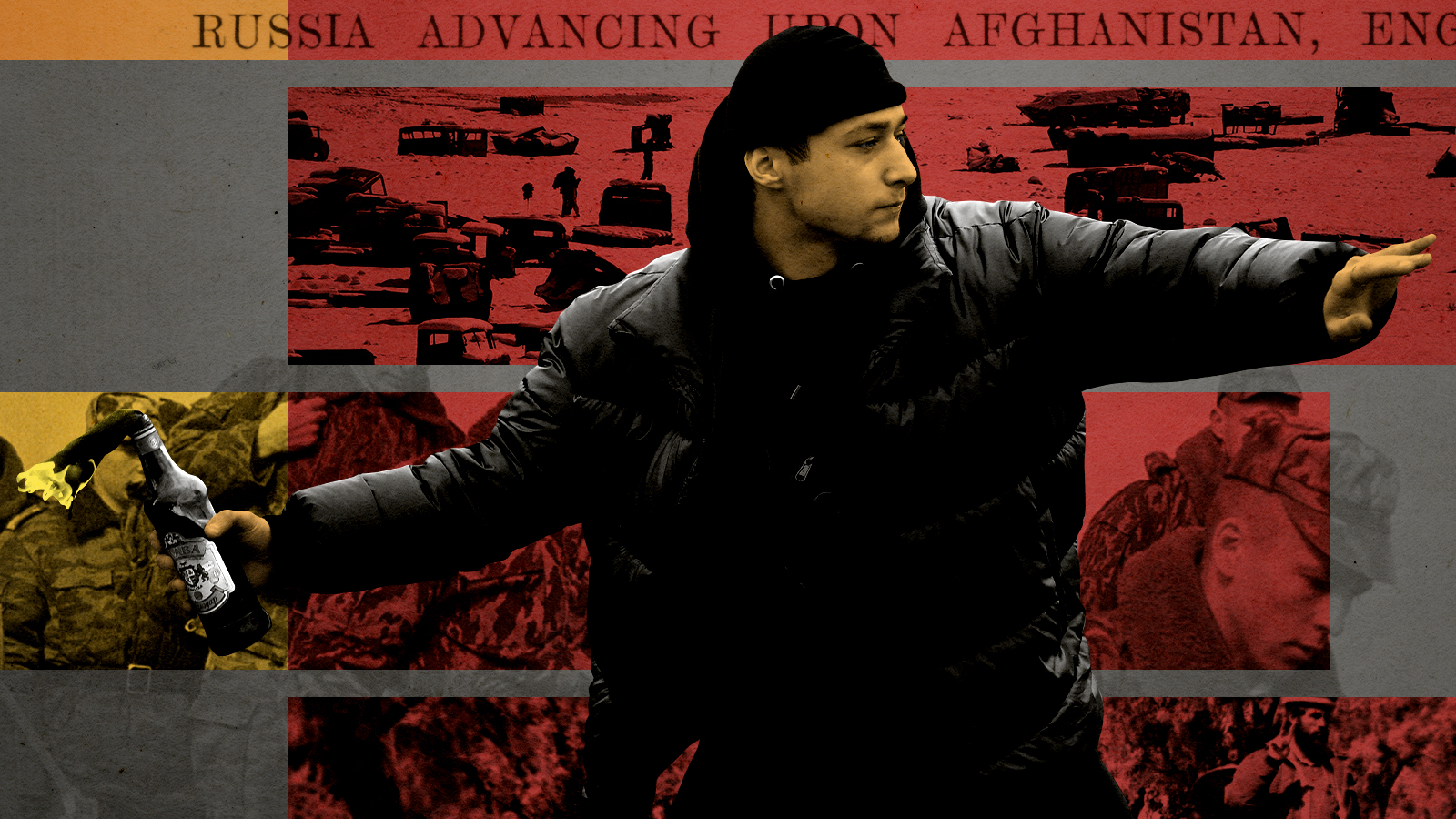The history lesson the Russians failed to learn


A free daily email with the biggest news stories of the day – and the best features from TheWeek.com
You are now subscribed
Your newsletter sign-up was successful
It sure seems like we've seen the Russo-Ukrainian war before — the story of a seemingly superior Great Power military invading an apparently weaker underdog nation, only to find itself stymied by the irregular tactics and fierce nationalism of the defenders. "The Russians were not ready for unconventional warfare," Rob Lee, a senior fellow at the Foreign Policy Research Institute, told The Washington Post, adding, "They are not sure how to deal with this insurgency, guerilla-warfare-type situation."
If that's the case, Russian leaders have short memories.
They should remember the Soviet Union's doomed war against Afghanistan, which ended in 1989 after a decade of brutal fighting against insurgents. For that matter, weren't they watching just a few months ago when the United States exited Afghanistan, undone by the exact same dynamic? Is nobody paying attention?
The Week
Escape your echo chamber. Get the facts behind the news, plus analysis from multiple perspectives.

Sign up for The Week's Free Newsletters
From our morning news briefing to a weekly Good News Newsletter, get the best of The Week delivered directly to your inbox.
From our morning news briefing to a weekly Good News Newsletter, get the best of The Week delivered directly to your inbox.
There is some speculation that Russian President Vladimir Putin took precisely the wrong lesson from those defeats. "I reckon he thought he'd roll into Kyiv the way the Taliban rolled into Kabul," Zoya Sheftalovich, a contributing editor for Politico's Europe edition, wrote in February. "Thought ordinary Ukrainians wouldn't resist. No bloodshed. Clean." Or perhaps Putin became overconfident because of his own country's bloody devastation of opposition forces in Syria.
If either of those theories reflects Putin's mindset, though, it's clear he misread both events. Russia's leader might have thought that he, like the Taliban, was reclaiming a piece of his own country by invading Ukraine — but it's now clear Ukrainians think otherwise. And while the Russians were dominant in Syria, they had the benefit of being allied with the regime pre-dating their involvement. The Ukrainians, meanwhile, are mostly united against the invaders.
But it also seems to be the case that Great Power militaries build their forces for great army-on-army battles; guerilla warfare doesn't play to either their strengths or preferences. "On one hand, the great power intrinsically brings overwhelmingly superior resources and technology to this type of conflict," then-Major Robert M. Cassidy wrote in a 2002 journal article, Why Great Powers Fight Small Wars Badly. "On the other hand, the seemingly inferior opponent generally exhibits superior will, demonstrated by a willingness to accept higher costs and to persevere against many odds."
That's a lesson grounded in history — going back, as Cassidy noted, all the way to the Roman Empire. It's also rooted in lived experience: In modern times, the United States ignored the experience of the French in Vietnam, only to get a crash course in counterinsurgency fighting, then promptly forgot everything and have to learn it all over again in Iraq and Afghanistan.
A free daily email with the biggest news stories of the day – and the best features from TheWeek.com
All of this means the Russian war is — like most wars — a failure of historical memory. More embarrassing to Putin and his cronies: It's recent history. And if that history is any guide, we'll also soon forget its lessons again.
Joel Mathis is a writer with 30 years of newspaper and online journalism experience. His work also regularly appears in National Geographic and The Kansas City Star. His awards include best online commentary at the Online News Association and (twice) at the City and Regional Magazine Association.
-
 ‘Restaurateurs have become millionaires’
‘Restaurateurs have become millionaires’Instant Opinion Opinion, comment and editorials of the day
-
 Earth is rapidly approaching a ‘hothouse’ trajectory of warming
Earth is rapidly approaching a ‘hothouse’ trajectory of warmingThe explainer It may become impossible to fix
-
 Health insurance: Premiums soar as ACA subsidies end
Health insurance: Premiums soar as ACA subsidies endFeature 1.4 million people have dropped coverage
-
 Putin’s shadow war
Putin’s shadow warFeature The Kremlin is waging a campaign of sabotage and subversion against Ukraine’s allies in the West
-
 Alexei Navalny and Russia’s history of poisonings
Alexei Navalny and Russia’s history of poisoningsThe Explainer ‘Precise’ and ‘deniable’, the Kremlin’s use of poison to silence critics has become a ’geopolitical signature flourish’
-
 US, Russia restart military dialogue as treaty ends
US, Russia restart military dialogue as treaty endsSpeed Read New START was the last remaining nuclear arms treaty between the countries
-
 What happens now that the US-Russia nuclear treaty is expiring?
What happens now that the US-Russia nuclear treaty is expiring?TODAY’S BIG QUESTION Weapons experts worry that the end of the New START treaty marks the beginning of a 21st-century atomic arms race
-
 Epstein files topple law CEO, roil UK government
Epstein files topple law CEO, roil UK governmentSpeed Read Peter Mandelson, Britain’s former ambassador to the US, is caught up in the scandal
-
 Iran and US prepare to meet after skirmishes
Iran and US prepare to meet after skirmishesSpeed Read The incident comes amid heightened tensions in the Middle East
-
 Israel retrieves final hostage’s body from Gaza
Israel retrieves final hostage’s body from GazaSpeed Read The 24-year-old police officer was killed during the initial Hamas attack
-
 China’s Xi targets top general in growing purge
China’s Xi targets top general in growing purgeSpeed Read Zhang Youxia is being investigated over ‘grave violations’ of the law
